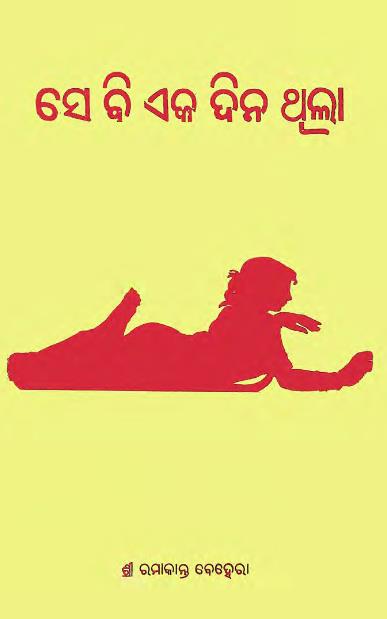in the vibrant landscape of Odia literature, the novel “Se Bi Ek Din Thila,” penned by the talented Ramakant Behera, holds a special place. Published in 1975, this poignant narrative offers a deep exploration of human emotions, relationships, and the complex weave of societal norms that shape our lives.
Plot Overview
“Se Bi Ek Din Thila” translates to “There Was a Day Too,” suggesting a sense of nostalgia and reflection that permeates the entire story. The novel intricately follows the life of its protagonist, deeply enmeshed in the cultural and social fabric of Odisha. Through a series of engaging events and character interactions, Behera delves into themes of love, loss, and the passage of time.
The storyline unfolds against the backdrop of rural Odisha, providing readers with vivid imagery and a sense of place. The characters, relatable and realistically portrayed, draw readers into their world, where every emotion is felt intensely. At the center of this narrative is a love story that transcends the boundaries of time and societal conventions, embodying a universal longing for connection and understanding.
Themes and Motifs
One of the most compelling aspects of “Se Bi Ek Din Thila” is its exploration of nostalgia. The characters often reflect on their past, cherishing moments that seem both beautiful and bittersweet. This theme resonates profoundly with readers, as it captures the essence of human experience — the longing for days gone by, for relationships that have shaped us, and for the dreams we once dared to dream.
Another significant theme is social dynamics. Behera skillfully depicts the challenges posed by societal expectations and norms, particularly in the context of love and marriage. Through the conflicts faced by the characters, the novel sheds light on issues such as caste, family pressures, and the struggle for personal happiness in the face of tradition. This exploration invites readers to reflect on their own societal constructs and the impacts they have on individual lives.
Writing Style and Impact
Ramakant Behera’s writing style is both lyrical and evocative. His use of the Odia language enhances the beauty of the narrative, making the emotions and experiences feel authentic and culturally rich. The dialogues are crafted with care, capturing the nuances of communication between characters and grounding their relationships in reality.
The book received acclaim not only for its engaging plot but also for its cultural significance. In an era when literature was evolving in Odisha, Behera’s work stood out for its ability to weave social commentary into a compelling narrative. Readers found solace in the familiar settings and situations, leading to a broader appreciation for Odia literature.
Conclusion
“Se Bi Ek Din Thila” remains a timeless piece in the realm of Odia novels. Ramakant Behera’s ability to encapsulate the essence of human emotions and societal challenges makes this work relatable even decades after its publication. Through the lens of love, nostalgia, and the complexities of life, Behera invites readers on a journey that is both personal and universal.
As readers turn the pages of this evocative novel, they are reminded of the enduring nature of love and the inevitable passage of time — themes that continue to resonate across generations. In the world of Odia literature, “Se Bi Ek Din Thila” stands as a testament to the richness and depth of storytelling, ensuring that its legacy endures in the hearts of those who encounter its pages.
Books Info
| Books name | Se Bi Ek Din Thila/ସେ ବି ଏକ ଦିନ ଥିଲା |
| Author | Ramakant Behera |
| No Of pages | 33 |
| Publisher | Sunanda Publication |
| Publication | 1975 |
| Printed At | Rastra Bhasa Samabayu Press |
| Distributor | NA |

